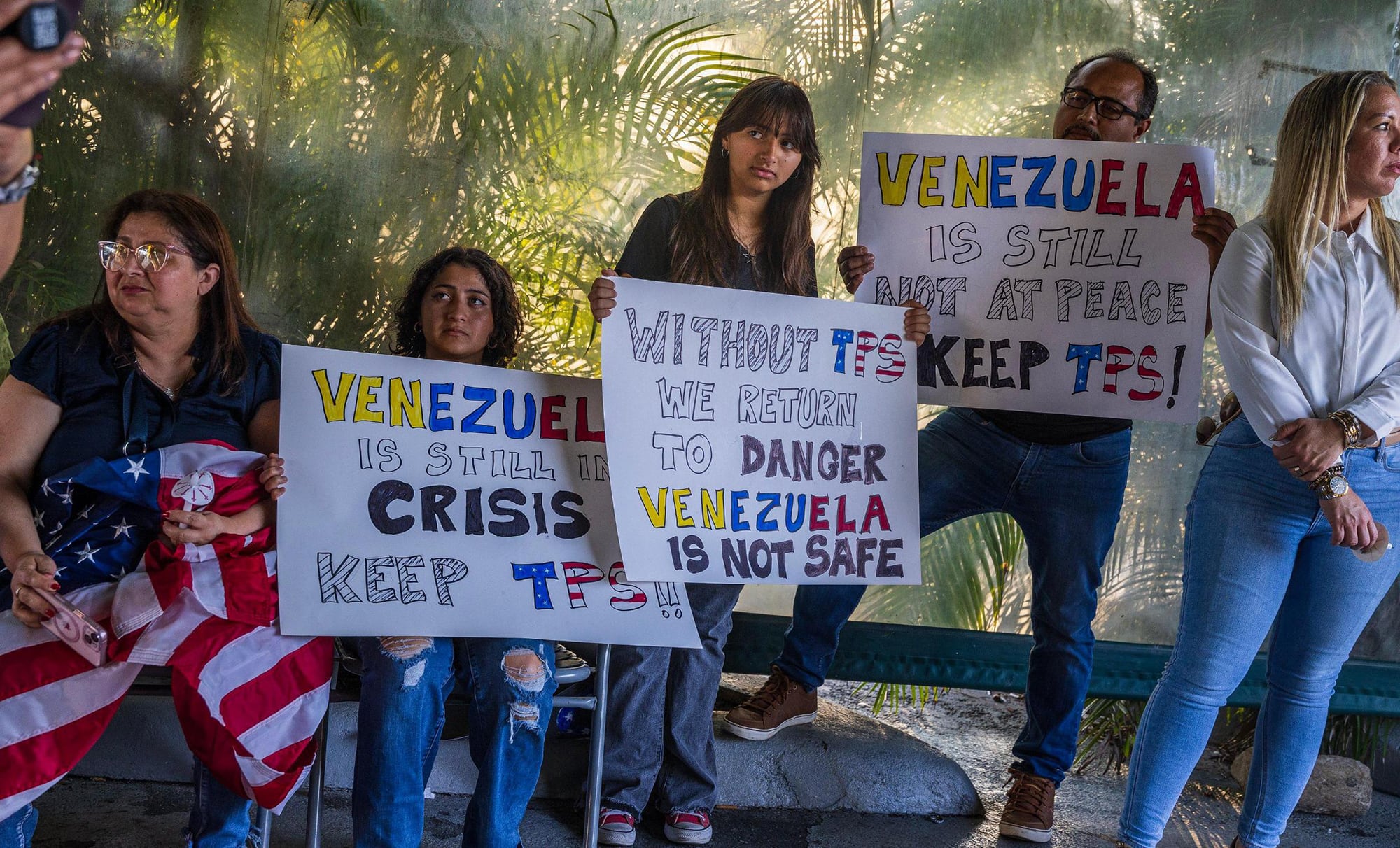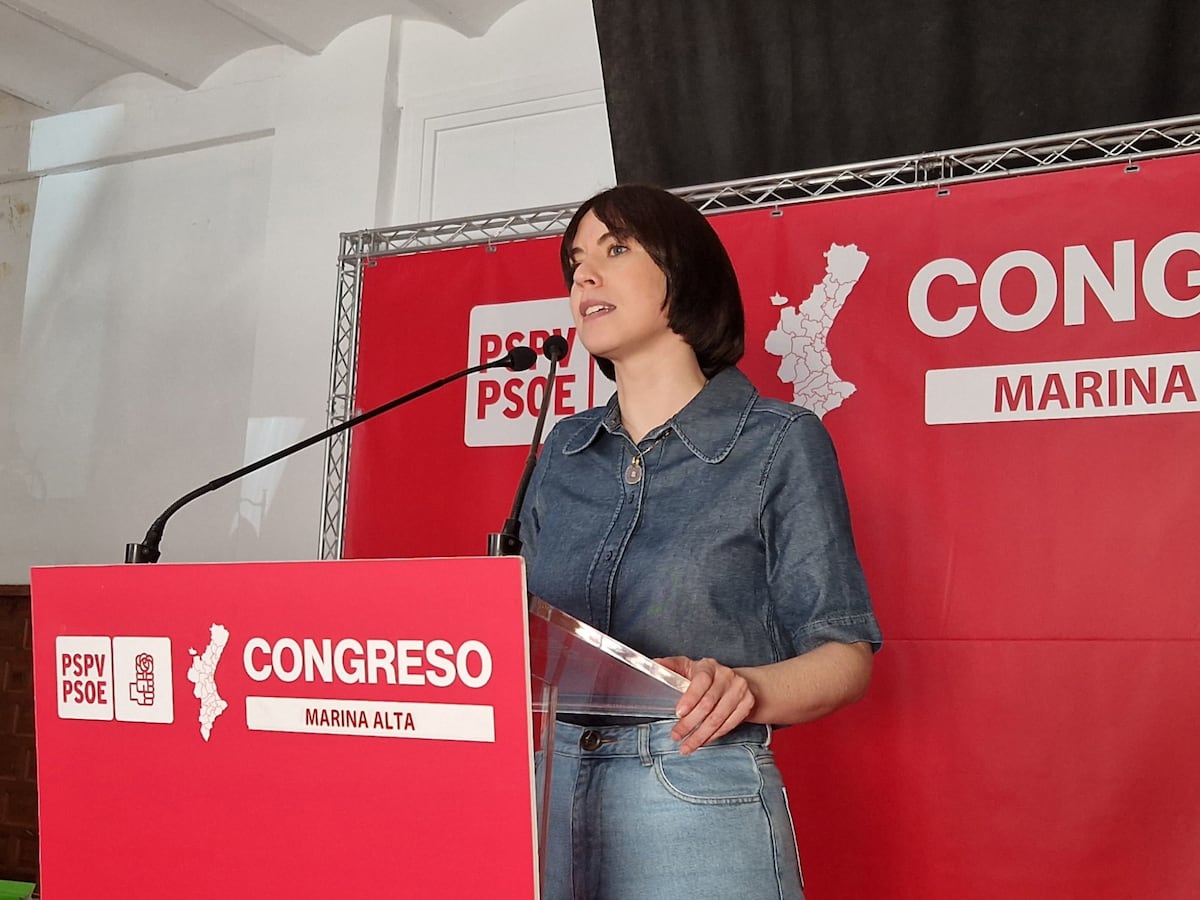[ad_1]

To date, some 607,000 Venezuelans have been granted Temporary Protected Status (TPS) through two different measures. The latest was issued by the Biden administration in 2023 and covers approximately 350,000 people. This is the TPS designation that the Trump administration plans to revoke, citing it as contrary to the “national interest” and alleging it benefits members of the Tren de Aragua, which was designated a foreign terrorist organization last February.
Although the Supreme Court upheld this decision, the reality is that even if all 7,000 Tren de Aragua members were in the United States — which they are not — and all were protected under TPS — which they are not — they would constitute only 2% of the 350,000 people who lost their status and less than 1.2% of the total beneficiaries.
Washington has every right to grant or revoke TPS to whomever it sees fit. However, the abrupt way this has been done in this case, combined with Venezuela’s deep economic and social crisis and its immense corruption, could worsen the humanitarian catastrophe and expose the deportees to threats from Maduro’s dictatorship. It is still chilling that — according to the U.N. Refugee Agency — almost eight million Venezuelans have fled their country. They are seeking to escape the deplorable conditions left by the Bolivarian Revolution, especially since Maduro’s arrival. Many of them, though not the majority, have come to the United States.
TPS is a humanitarian program administered by the United States Citizenship and Immigration Services (USCIS). It is intended for citizens of countries designated by Washington that are experiencing armed conflict, natural disasters, or extraordinary temporary conditions. Those who meet the requirements and receive it can stay in the U.S., work, and eventually travel abroad despite their protected status.
It was created by the U.S. Congress in the Immigration Act of 1990, promoted and signed by the Republican administration of George H. W. Bush. Its approval was clearly bipartisan in the Senate — with 89 votes in favor and eight against — and somewhat less so in the House of Representatives, with 231 votes in favor — mostly Democrats — and 192 against, mostly Republicans.
Venezuela’s internal crisis is so deep that, although the Venezuelan National Statistics Institute (INE) estimated in 2015 that Venezuela would have 32.6 million inhabitants by 2020, the reality is it only reached 28.5 million inhabitants in 2024, according to the Worldometers analysis center. This should be cause for reflection.
Venezuela has the largest oil reserves on the planet. In the late 1990s its production was rising, around three million barrels daily, reaching its highest peak of almost 3.2 million barrels per day in 2000. This was the year after Hugo Chávez first came to power in March 1999.
From that point, the country’s main source of income dropped to around 2.5 million barrels daily in 2014, the year after Nicolás Maduro assumed power. Since then, oil production has plummeted, dragging the Venezuelan economy down, which was already suffering the effects of “21st Century Socialism,” adopted by Hugo Chávez in 2005. In 2020, production hit bottom at 527,000 barrels daily (a sixth of the 2000 level) and in 2024, it was only 873,000 barrels per day.
In Venezuela, the infant mortality rate, which in 1994 was 22 deaths per 1,000 live births, improved to 14.2 deaths in 2014. Since Maduro’s rise to power, however, this indicator has consistently worsened, reaching 24.9 in 2023 — more than the figure recorded in 1994.
The homicide rate per 100,000 inhabitants is also high. In 1998, it was 21 deaths per 100,000 inhabitants, a figure that was already concerning. In four years, violent deaths doubled to 42 in 2002, reached 62 in 2013 when Maduro came to power, and hit a terrifying 92 murders per 100,000 inhabitants in 2017. The situation seems to have improved recently, but the transparency of these figures has been heavily questioned by nearly all analysts: according to the government in Caracas, today’s rate is 4.1 homicides per 100,000 inhabitants, below the 10.7 in peaceful Uruguay and the United States’ 5.0 in 2024.
Corruption in Venezuela is also staggering. In 1998, Transparency International’s Corruption Perceptions Index ranked Venezuela 27th out of 180 countries; by 2005 it was 130th, in 2011 it was 172nd, and in 2024 it sank to 178th. Venezuela is now one of the most corrupt countries in the world, only surpassed by Somalia and South Sudan, both suffering complex internal conflicts with millions requiring humanitarian aid, famine, and forced displacement due to poverty and violence.
This context of corruption, violence, and impoverishment has also been fertile ground for criminal gangs of various kinds, the most notorious being Tren de Aragua, which today is estimated to have about 7,000 members operating in Venezuela, Colombia, Peru, Chile, Brazil, Ecuador, Bolivia, Mexico, and the United States, engaged in drug trafficking, human trafficking, extortion, murder, and kidnapping, among other crimes.
In this scenario, on July 28, 2024, Edmundo González Urrutia won the presidential elections against Nicolás Maduro with a demonstrated vote of over 66%, which Maduro blatantly refused to recognize, amid indifference or complicity from some countries in the region and the inactivity of the Biden administration, whose handling of the Venezuelan crisis was utterly erratic.
There is no doubt that Venezuelans could qualify for TPS as defined by law. It is a remedy that would relieve many, but it is temporary and does not solve Venezuela’s underlying problem: its government. If the White House wants to support the region and maintain its leadership, it should actively work to prevent the Venezuelan dictatorship from becoming a permanent fixture in the region; it should promote the return of democracy, then rebuild bilateral relations with that country and its immense energy wealth, which is surely of interest to President Trump.
Could Marco Rubio lead that effort, using “diplomacy to the extent possible and force to the extent necessary,” as Rex Tillerson said? If he succeeds, Latino voters would very likely thank him at the polls in 2028.
Sign up for our weekly newsletter to get more English-language news coverage from EL PAÍS USA Edition
[ad_2]
Source link







Comentarios